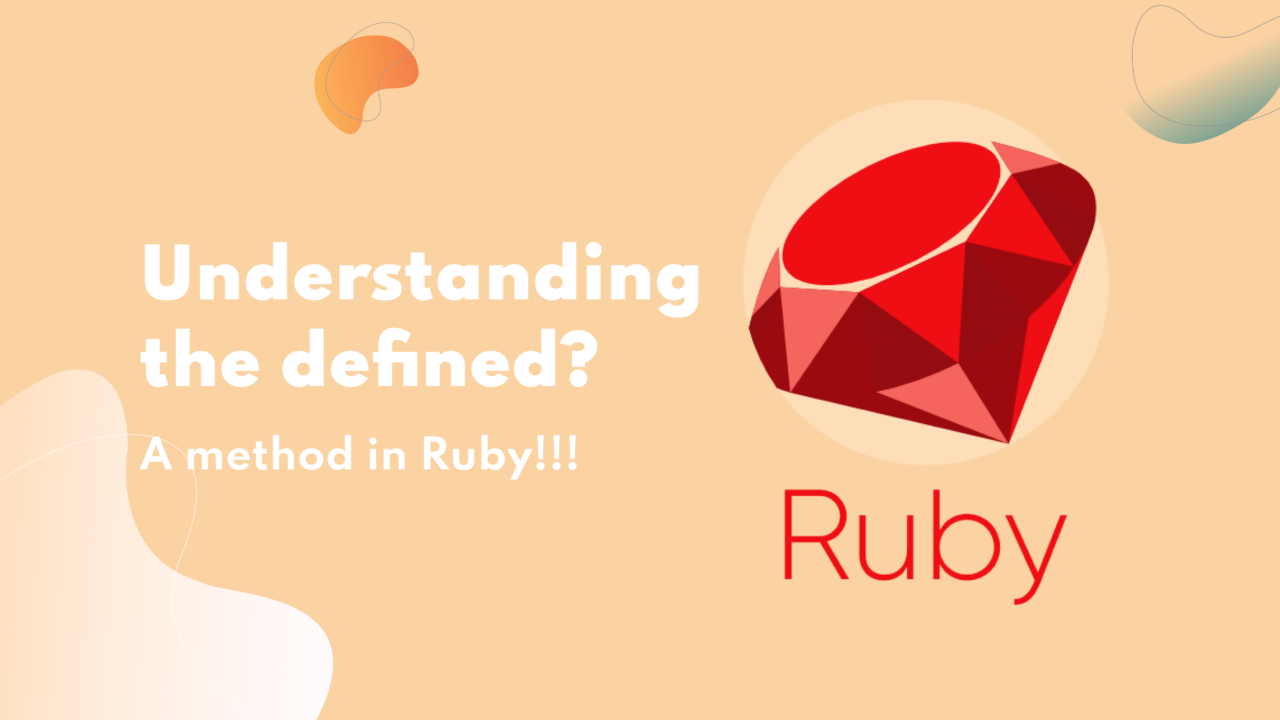Ruby, a dynamic and reflective programming language, provides a variety of methods to introspect and understand the state of your code. One such method is defined?, a powerful tool that allows you to check the existence and type of variables, methods, and expressions. In this post, we’ll delve into the nuances of the defined? method and explore how it can be a valuable asset in your Ruby on Rails toolkit.
What is defined? in Ruby?
The defined? method in Ruby serves as a means to query the existence and type of a given expression. It helps you answer questions like “Is this variable defined?” or “Does this method exist?” The return value of defined? provides insights into the nature of the queried expression.
Syntax
The basic syntax of the defined?method is as follows:

Here, expression can be a variable, method, or any other Ruby construct.
Examples
Checking Variable Existence
Let’s start by exploring how defined? can be used to check if a variable exists:

In this example, the output will be “Variable ‘foo’ is defined,” as the variable foo has been assigned a value.
Verifying Method Existence
You can also employ defined? to verify the existence of a method:


Here, the output will be “The ‘greet’ method is defined” since the greet method has been defined.
Handling Undefined Variables
When checking for the existence of an undefined variable, defined? returns nil. Consider the following example:


The output will be “Variable ‘bar’ is not defined” because the variable bar has not been assigned.
Understanding defined? with Complex Expressions
defined? can handle more complex expressions, providing detailed information about the type of the expression:

Here, the first puts statement indicates that hash is a local variable, while the second one reveals that hash[:key] is a method.
Conclusion
The defined? method in Ruby offers a convenient way to inspect the existence and type of variables, methods, and expressions. Whether you’re writing conditional statements or debugging code, defined? can be a valuable ally in your Ruby programming journey. Use it wisely to enhance the robustness and clarity of your code.
Happy coding!



